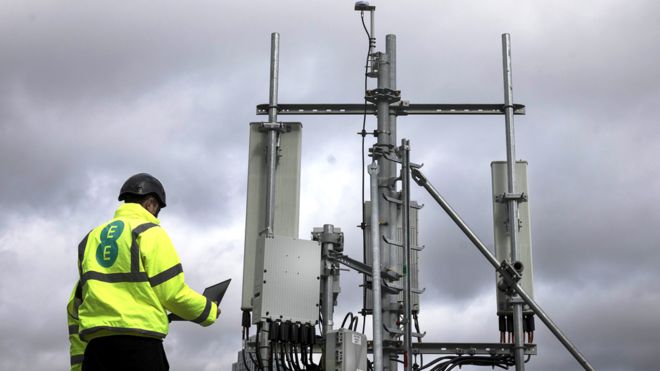According to reports this morning, the government is planning to issue an order to all local councils forbidding them from stopping trials of 5G mobile broadband on the basis of what it considers to be unfounded safety claims.
For those that not familiar, 5G (literally ‘fifth generation’) is the next wave of wireless internet which will apparently boost our connection speeds tenfold and increase the UK’s productivity by some £2bn a year. Yet three councils – Totnes, Glastonbury and Frome – are opposing local trials of 5G masts until they’re convinced it doesn’t present an increased cancer risk. The government wants them to think again.
An increased cancer risk might sound pretty alarming. Yet scientists and other experts are completely unambiguous in saying that 5G represents no significant health-risk. So why do so many people seem to think so?
Conspiracy theories and scare stories about the radiation from mobile phone networks are nothing new in themselves. In the 80s and 90s, newspapers shared debunked stories about how mobile phones might be causing cancer. But with the internet – and in particular social media – this kind of pseudoscience spreads much quicker. Ten years ago we might have repeated a conspiracy about vaccination or GM food at the watercooler; now we share it with our entire social network at the click of a button.
Some 22,000 Facebook users have joined British-based groups opposing the rollout of 5G. This summer, the activists behind Stop 5G (the most popular Facebook group) embarked on a national tour of town-hall meetings, calling on supporters to pressure their MPs to stop the upgrade. I went to one of the meetings in London and was almost turned away as the venue had reached capacity.
In response to the activists, EE, one of the companies behind the 5G rollout, launched a rapid response programme to deal directly with public concerns. Now the government is planning its own public information campaign.
Winning the argument won’t be easy. The concerns of the 5G refuseniks go beyond the common smart-phone grumbles. They’re not concerned that greater connectivity will see more phone-zombie pedestrians stumbling blindly into their paths; or that constant notifications will further erode our national table manners. They are convinced that 5G represents something much more dangerous – a 21st century Great Leap Forward with the potential to ruin lives.
Scroll through an anti-5G Facebook group and you’ll hear fears that the higher frequencies from 5G will cause a spike in just about every condition going: from brain tumours to dementia, and from autism to sleep disorders. Some say that the increased radiation will render us confused and docile, thus allowing totalitarian governments to expand their control.
Experts criticise the 5G conspiracy theorists for their misleading approach towards facts. They point to the way the groups often cite a rise in brain tumours which correlates with the rise in mobile broadband networks. Yet scientists say that, rather than evidence of an electromagnetic blitzkrieg, the rise is down to better detection and reporting.
Not that this has reassured 5G’s opponents. For the most adamant, it only strengthens their conviction that government and the internet giants are engaged in a bigger conspiracy to harm the population, and that the so-called ‘experts’ are in their pocket. On Facebook, they share doctored photos of hazmat-wearing apparatchiks supposedly installing dangerous infrastructure in suburban towns. Some have pledged to fight back directly by damaging the pylons.
The panic has even reached some politicians. Alongside the three councils who have opposed local trials, several Labour backbenchers have issued statements about 5G’s health impact. The co-founder of the Brexit party, Catherine Blaiklock, believes it could be lethal. Meanwhile in America, speculation that 5G is a deep-state ploy has energised part of Trump’s base.
Of course, a loose network of fringe eccentrics, even with thousands of followers on Facebook, isn’t going to stop the 5G upgrade; nor is it likely to sway the rest of us from wanting quicker browsing speeds. But the movement shouldn’t be dismissed entirely. If nothing else, it’s a reminder of the power of conspiracy theories in a time of political uncertainty.
From the alleged Dolphin Square paedophile ring to exaggerated claims about Cambridge Analytica’s influence over the EU referendum, more and more of us seem inclined to let our imaginations run away with us. In both the US and UK, the popularity of conspiracy theories has been a boon to various extremist groups. The loopy Pizzagate conspiracy – alleging a child-trafficking conspiracy at the heart of the Democratic party – even led to a shooting.
As ever, the danger isn’t that we’re losing our faith in the system; it’s what we end up believing instead. Something that should worry us more than an upgrade to our wireless communication networks.






Comments